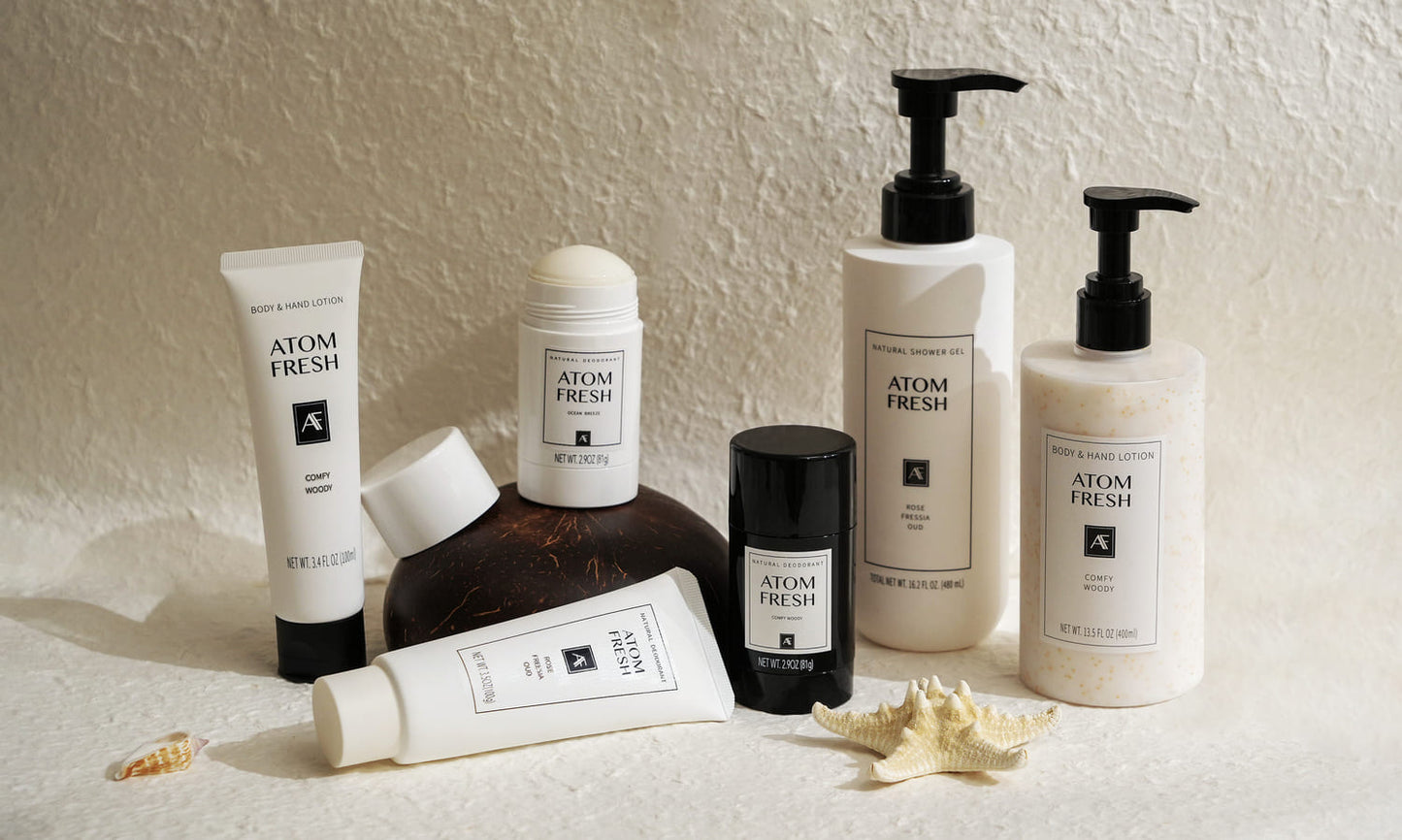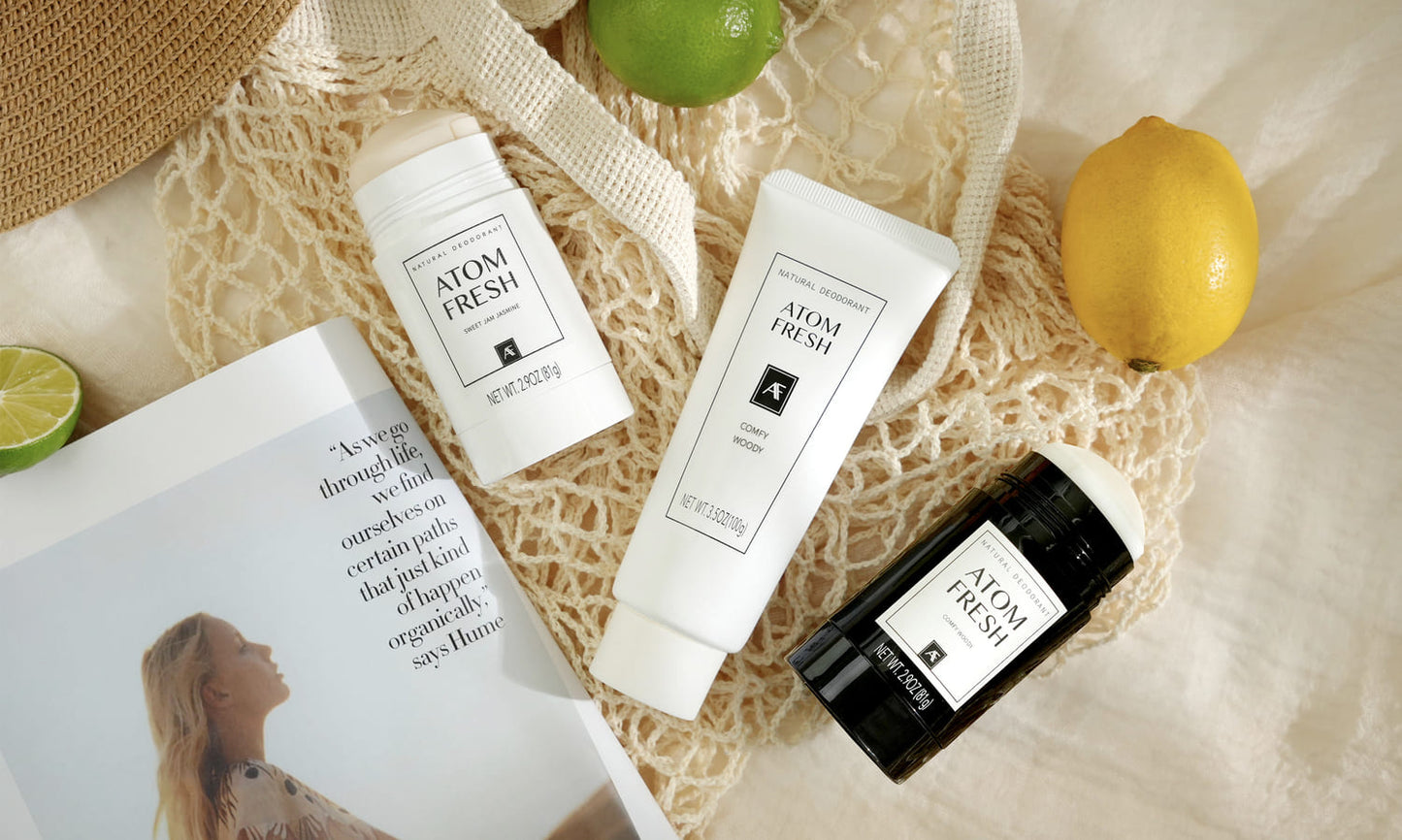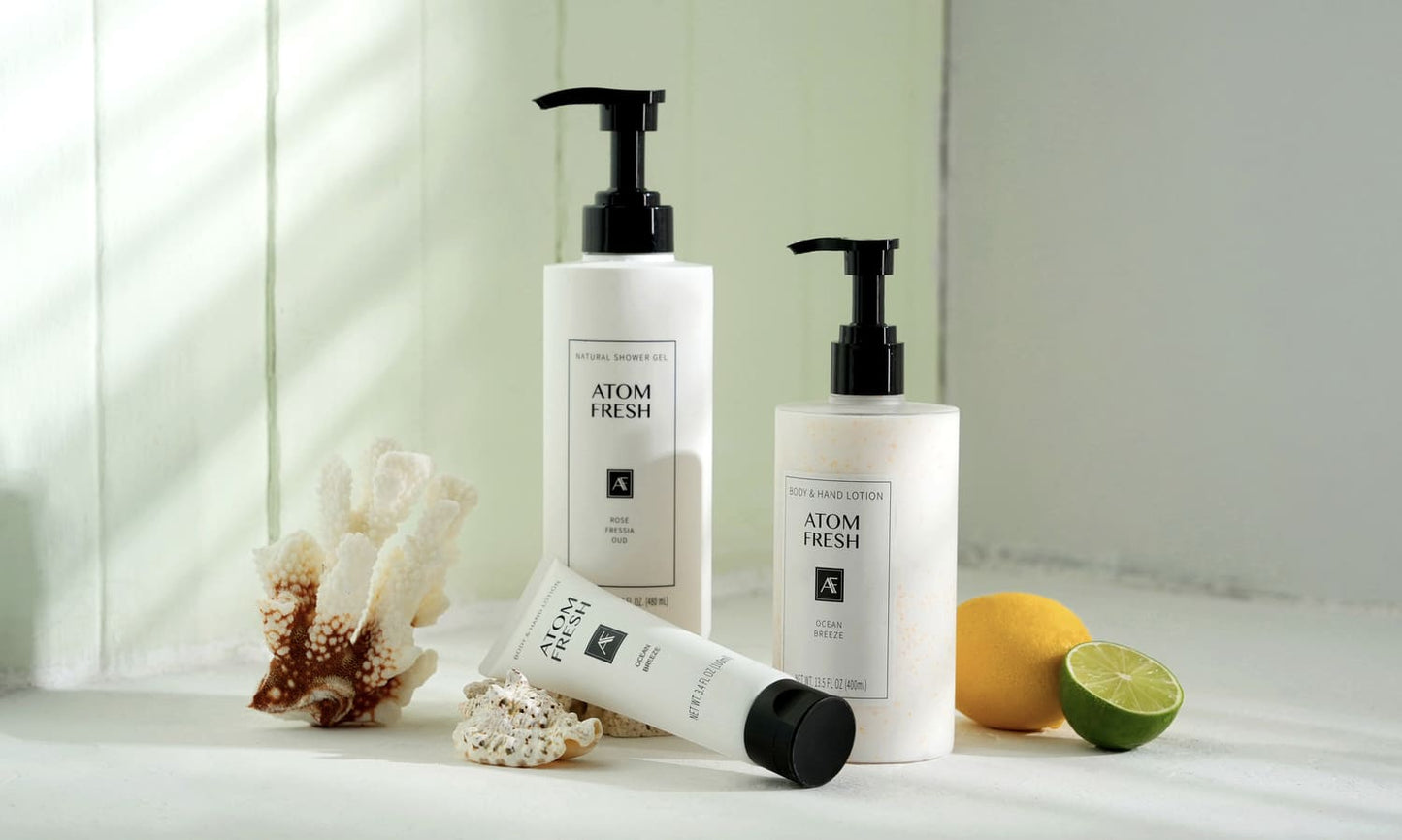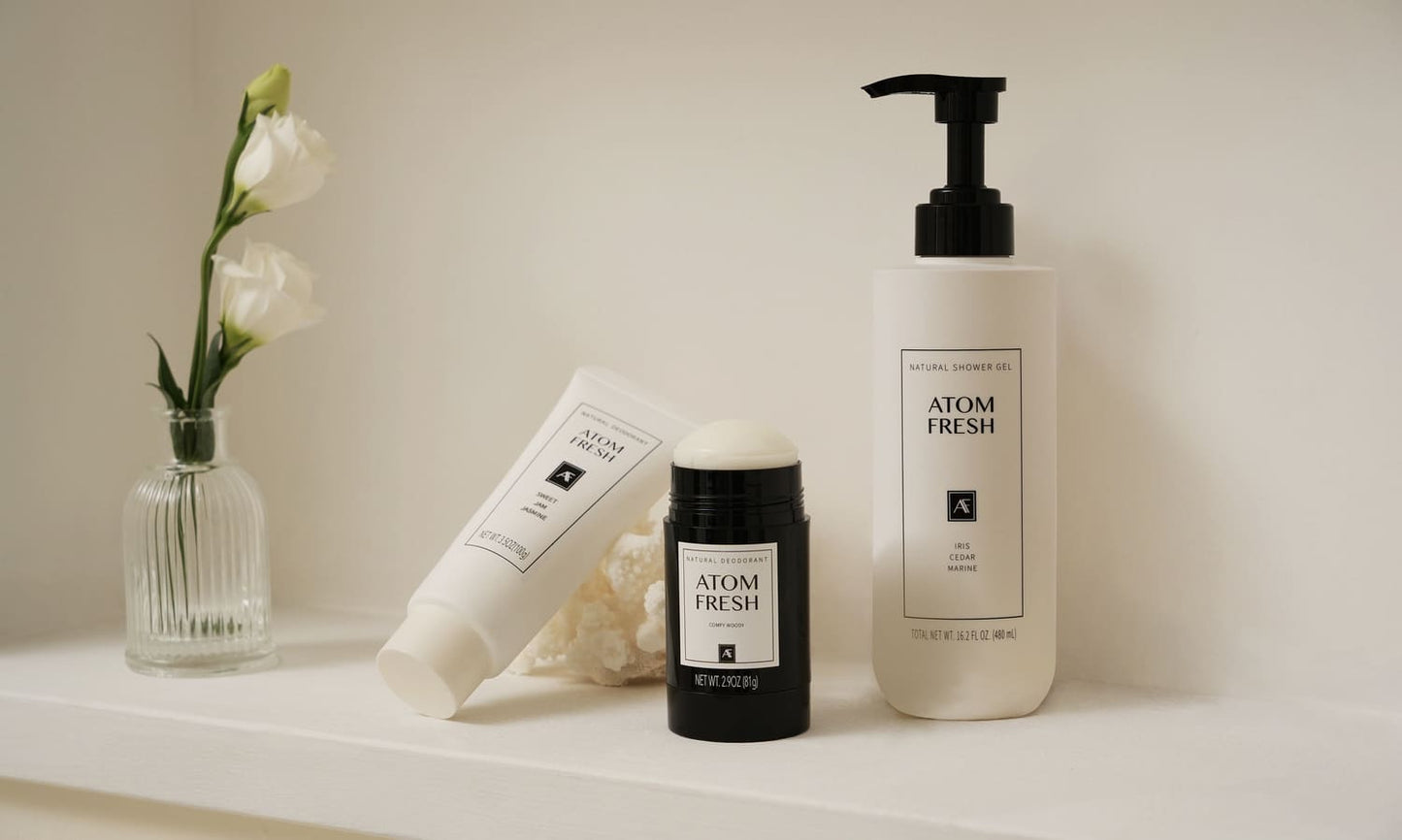blog

Six Reasons Why You’ll Love Natural Deodorant
Everyone hates to smell bad—that’s not new information. That’s why we reach for deodorant and antiperspirant to stay fresh. But did you know that not all deodorants are created equal? For those who care about sensitive skin, natural ingredients, and sustainability, the right choice can make all the difference. With the rise of clean beauty trends and eco-conscious lifestyles, natural deodorants are becoming increasingly popular. But why are people switching from traditional antiperspirants to natural alternatives? Here are six compelling reasons why you’ll fall in love with natural deodorant, and why AtomFresh has made it easier than ever to...

Sustainably Fresh: Understanding the Difference Between Deodorant and Antiperspirant this Earth Day
Everyone hates to smell bad—that’s not new information. That’s why we reach for deodorant and antiperspirant to stay fresh. But did you know they’re not the same thing? These two products serve different purposes and have completely different ingredients. As Earth Day 2025 reminds us—It’s Our Power, It’s Our Planet—our everyday choices matter. So, let’s talk about what goes on your skin and how it impacts the environment. Deodorant vs. Antiperspirant: What’s the Difference? PSA: Deodorant and antiperspirant are not interchangeable! Antiperspirants stop sweat by blocking your sweat glands with aluminum salts. Deodorants neutralize odor without interfering with...

Is Natural Body Wash Good for Sensitive and Dry Skin?
When it comes to body wash, not all formulas are created equal—especially if you have sensitive or dry skin. The wrong product can leave your skin feeling tight, itchy, or irritated, turning what should be a relaxing shower into an uncomfortable experience. That’s why, at AtomFresh, we set out to rethink body cleansing from the ground up—developing a natural body wash designed to cleanse without compromising comfort. But does natural body wash truly make a difference? Let’s explore why it might be the upgrade your skin needs. Why Sensitive & Dry Skin Needs Special Care If you live...

Deodorant and the Elegant Attitude Towards Life: A Subtle Refinement
In modern life, elegance is no longer just a label for a glamorous appearance; it is an attitude that radiates from within. It is found in the subtle details of daily life—low-key, refined, yet always conveying effortless beauty. This concept has been increasingly recognized in recent beauty and lifestyle trends. According to Who What Wear’s Autumn/Winter 2025 beauty forecast, there is a shift toward natural, romantic, and self-expressive aesthetics, emphasizing authenticity and elegance over overly elaborate appearances. Moreover, the market for natural and organic deodorant products is growing rapidly. It is projected to reach USD 9.312 billion by 2030, with...

Can Deodorant Cream Be Used on Sensitive Skin?
If you have sensitive skin, choosing the right deodorant can feel like a challenge. Traditional sprays or roll-ons often contain alcohol, fragrances, or aluminum salts, which may cause redness, irritation, or allergic reactions. The market offers a wide range of deodorant products, including sprays, roll-ons, sticks, and creams. Among these, deodorant creams are emerging as a gentle, effective option. After extensive research on sensitive skin, AtomFresh identified that many people avoid deodorants due to fear of irritation, impacting their daily comfort and confidence. To address this, AtomFresh developed a deodorant cream specifically designed for sensitive skin, providing both hydration...

The Science Behind Natural Deodorants: How They Work
The Science Behind Natural Deodorants: How They Work In recent years, natural deodorants have gained popularity as more people seek alternatives to conventional antiperspirants. But how do they actually work? Unlike antiperspirants, which block sweat glands to reduce perspiration, natural deodorants focus on neutralizing odor while allowing the body to sweat naturally. To fully understand how natural deodorants work, we need to break down the science behind sweating, body odor, and the mechanisms that make natural deodorants effective. Sweating vs. Body Odor: Understanding the Difference Sweating is an essential bodily function that helps regulate body temperature, especially in warm...




